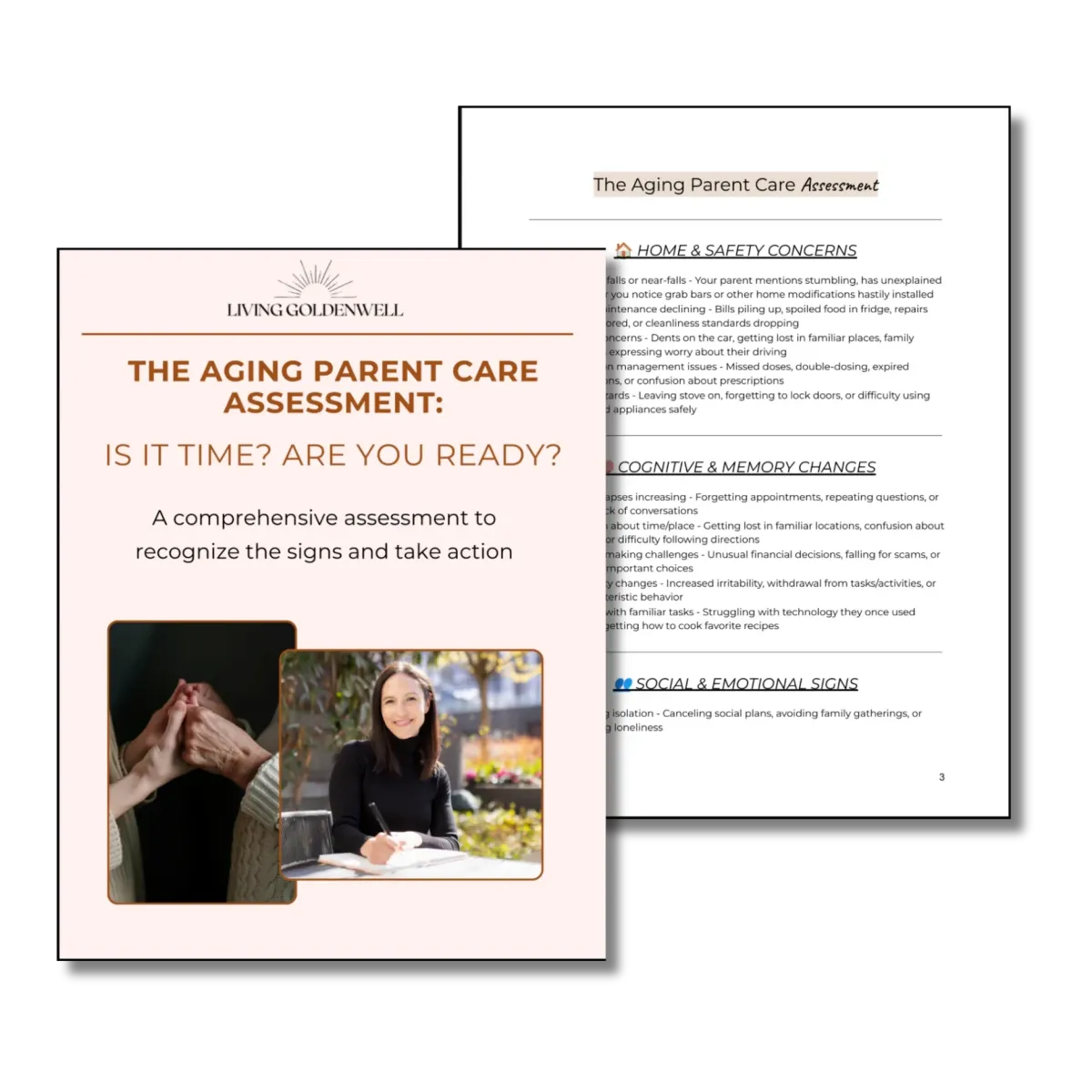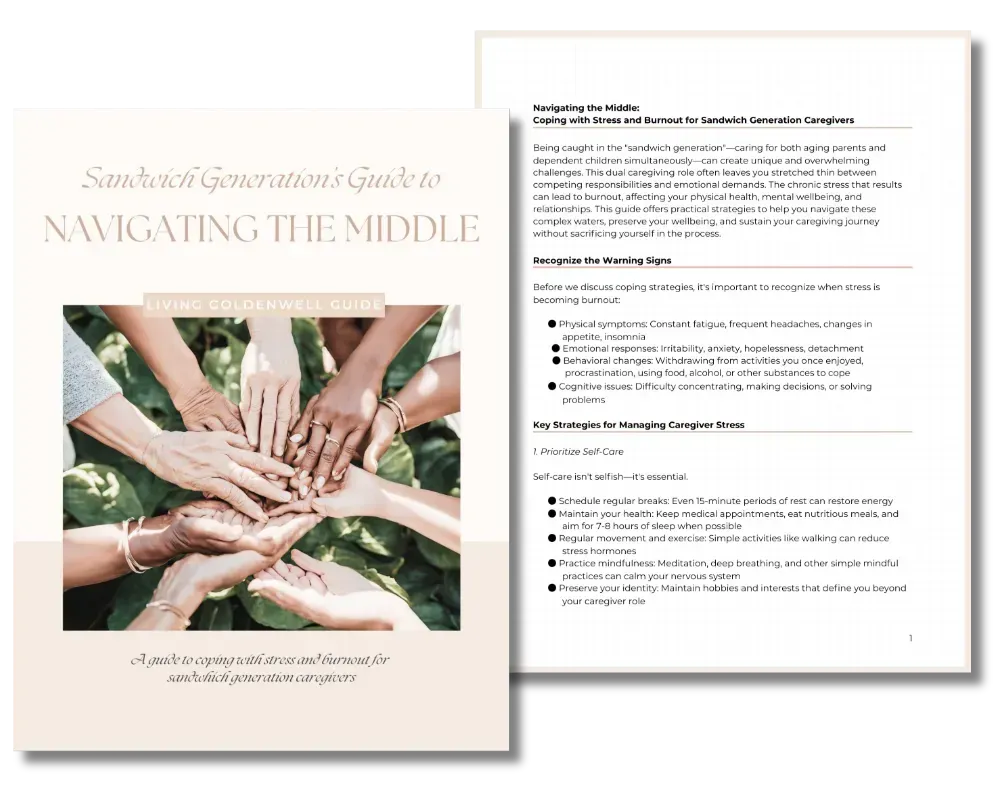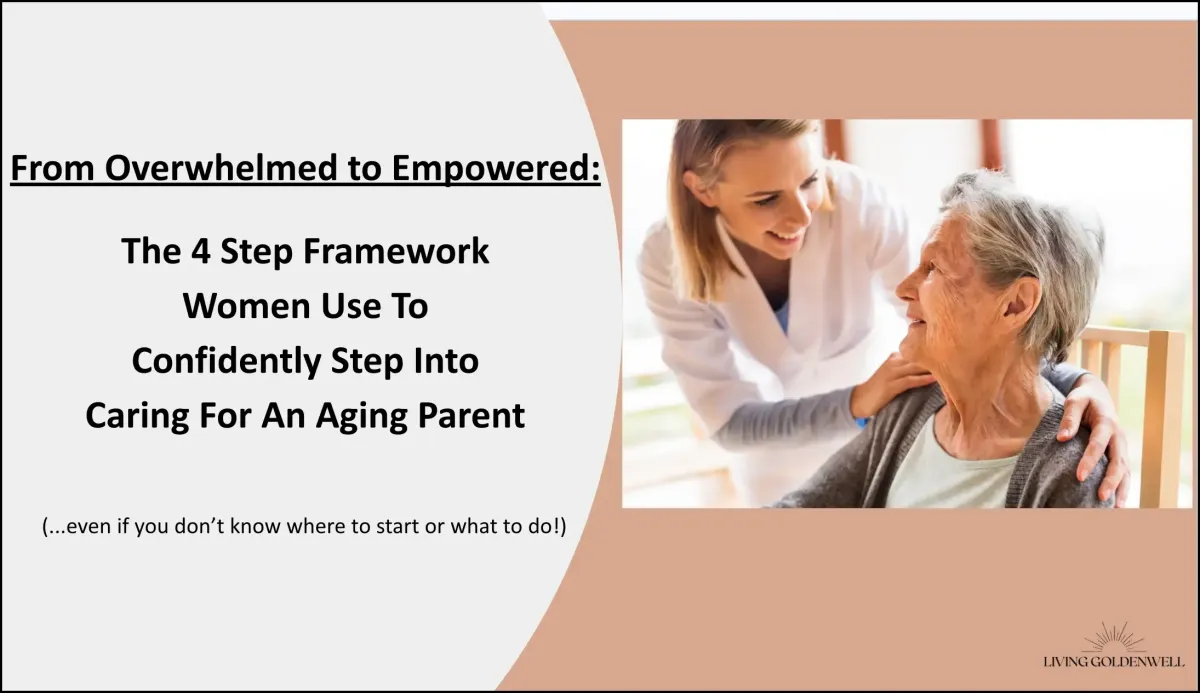
Why Employers Must Act Now on Eldercare Policies
The Silent Workforce Challenge
Across the U.S., more than 63 million people provide unpaid care for aging loved ones. Many of them are professional women in their prime working years, balancing demanding careers with the complex, never-ending responsibilities of eldercare. Yet, despite the scale of this reality, most workplaces still have no formal eldercare policies in place.
This silence comes at a cost — not just to caregivers themselves, but to companies facing lost productivity, turnover, and stalled career progression for talented employees. Employers cannot afford to treat eldercare as a “personal matter.” It is a workforce strategy issue, and it demands thoughtful policies now.

The Cost of Doing Nothing
The numbers speak for themselves:
70% of working caregivers report serious difficulties balancing career and caregiving responsibilities (AARP, 2024).
Roughly one in three caregiver employees has either reduced hours, shifted to part-time, or left the workforce altogether due to caregiving (Rosalynn Carter Institute, 2024).
Caregiving responsibilities cost U.S. businesses an estimated $17–33.6 billion annually in lost productivity, absenteeism, and turnover. Some studies place the figure as high as $44 billion (AARP, Cariloop, Trualta, 2025).
For employers, the risks are clear: unaddressed eldercare needs drive attrition, increase absenteeism, and weaken employee engagement. For professional women, the stakes are even higher — stalled promotions, financial insecurity, and long-term health risks.
Eldercare isn’t just a family issue. It’s a leadership, policy, and organizational challenge.
Why Eldercare Belongs in Workplace Policy
For decades, workplaces have developed policies around maternity, parental leave, and mental health. Yet eldercare is the missing piece of the benefits conversation. Here’s why it matters:
Demographics are shifting: With longer lifespans and rising dementia diagnoses, caregiving is now a long-term workforce issue.
The sandwich generation is growing: Women and men in their 40s and 50s are caring for both children and aging parents, creating dual stress on careers.
Gen Z is not exempt: At least 3 million adults under 25 are already caregiving for older relatives.
Without proactive policies, companies risk falling behind in both talent retention and employee wellbeing.
What Employers Can Do: Policy Solutions That Work
Employers don’t need to solve the entire eldercare crisis, but they do need to act. Here are practical, policy-driven steps workplaces can adopt:
Formalize flexibility: Offer remote work, compressed schedules, job sharing, or reduced hours for caregiving employees.
Enhance benefits: Add paid caregiver leave, financial counseling, and access to eldercare resources within Employee Assistance Programs.
Normalize conversations: Train managers to ask about caregiving in 1:1s without stigma, and encourage leadership to model openness.
Create caregiver networks: Build employee resource groups or internal forums where caregivers can share resources and strategies.
Invest in education: Provide workshops, curated resources, and partnerships with organizations specializing in eldercare planning and navigation.
Checklist: What Every Employer Should Ask Today
Do we have eldercare policies in place, similar to parental leave or mental health?
Are managers trained to have supportive, stigma-free conversations?
Do our benefits meaningfully address the realities of elder caregiving?
Have we measured the productivity and retention impact of caregiving on our workforce?
If the answer is “no” or “not sure,” the time to act is now.
Eldercare Is the Next Workplace Frontier
Employers who ignore eldercare risk losing their most talented employees — particularly professional women navigating the most demanding years of career and caregiving.
Supporting elder caregivers is smart business strategy. Companies that prioritize eldercare policies will see stronger retention, higher employee engagement, and long-term loyalty.
At Living Goldenwell, we help organizations and individuals bridge the gap between elder caregiving and professional life. The future of work depends on it.
Next Steps for Leaders and Professionals
Read: Speaking & Workshops to learn about keynote speaking, employee workshops and manager training to educate and empower leaders and employees. Helping organizations support and retain their talent who are caregivers navigating eldercare.
Learn: About the Caregiving From The Middle program as an educational and support resource your female talent needs for sustainable eldercare leadership.






